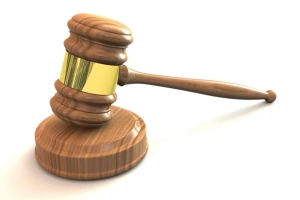 There is no easy answer for this question. The short version is that they technically can report you for torrenting, but there’s much more to it than that and every case is different. When it comes to the internet, torrenting is always the topic that raises the most amount of doubt among its users. Is it illegal? What are the consequences? How can anyone stay out of trouble if they have torrented in the past? All these questions are common, valid, and understandable given that torrenting is in a very confusing gray area.
There is no easy answer for this question. The short version is that they technically can report you for torrenting, but there’s much more to it than that and every case is different. When it comes to the internet, torrenting is always the topic that raises the most amount of doubt among its users. Is it illegal? What are the consequences? How can anyone stay out of trouble if they have torrented in the past? All these questions are common, valid, and understandable given that torrenting is in a very confusing gray area.
The act of torrenting is plainly legal pretty much in the entire world, but the programs designed for this method of file sharing also allow copyrighted content to be accessed and shared by other users on those platforms. And downloading any of that content is obviously illegal.
For instance, Linux distribution operating systems can be downloaded for free in a wide variety of manners – including through BitTorrent – and because the software is free and open source, you can rest assured that you’re not breaking the law by downloading through torrent. However, if you use the same software to download a song, movie, game, or any other media product, then the legality line is crossed since that content is protected by copyright. The main idea here is that torrenting doesn’t necessarily equate to piracy but it does provide a direct route to it, which explains all the confusion around the topic.
Copyright laws change across the different countries but most of them converge on criminalizing those who profit from making unauthorized copies, regardless of whether they’re physical or digital. Burning a DVD and making 20 copies out of it is illegal, just as is the case of uploading it once to the internet for torrenting. In the case of the latter, the next step taken by ISPs is dependent on the legislation in place.
 In the U.S., throttling connections is a silent technique widely used by ISPs to indirectly make people give up on downloading or streaming. Strike notices are often sent to stop you from torrenting in the future, too, though it’s likely that this will only happen after repeated use of torrenting. ISPs monitor the torrent networks – BitTorrent and others – and know which sites you visit, so if your IP address is repeatedly associated to one of these networks then it’s much more likely that you’ll get noticed than if you’re been there once or twice over the space of a year.
In the U.S., throttling connections is a silent technique widely used by ISPs to indirectly make people give up on downloading or streaming. Strike notices are often sent to stop you from torrenting in the future, too, though it’s likely that this will only happen after repeated use of torrenting. ISPs monitor the torrent networks – BitTorrent and others – and know which sites you visit, so if your IP address is repeatedly associated to one of these networks then it’s much more likely that you’ll get noticed than if you’re been there once or twice over the space of a year.
However, technically it is possible for ISPs to take legal action against excessive torrenters. Fortunately, this is rare and unless you download terabytes of copyright data often, it’s very unlikely that a lawsuit will ever be filed against you. Still, should a large number of cases occur in a short space of time, it can act as a release valve for such action to be taken by the ISP, as happened in the UK at the beginning of 2018. To avoid being caught downloading any kind of content, a VPN is more than enough.
These tools disguise your IP address and prevent ISPs from monitoring your online activities. However, make sure to choose a VPN that not only supports torrents and offers P2P servers, but also features reliable DNS and IPv6 leak protection. Additionally, a kill switch is a mandatory feature for all torrent users since it ensures that all internet connections are disabled if the VPN connection abruptly stops working, ensuring that your ISP won’t be able to openly see your traffic for even for a couple seconds. It’s always best to play it safe, even if that means paying for a premium VPN.
The Best VPNs of 2024
| Rank | Provider | Info | Visit |
1
|
Editor's Choice 2024

|
|
|
2
|
|
||
|
3
|

|
|
More ISP FAQs
- Can My ISP See My TOR Activity?
- Does an ISP Store Browsing History Record Searches?
- How Does an ISP Block VPNs?
- How Does an ISP Control Internet Speeds?
- How Does an ISP Track Data Usage?
- Will My ISP Report Me for Torrenting?
Get the Best VPN Deals
Want to stay up to date on the latest VPN news and discounts? Get exclusive offers and deals sent straight to your inbox!